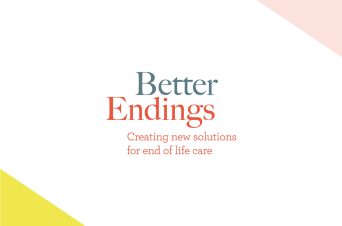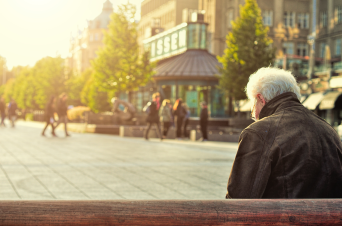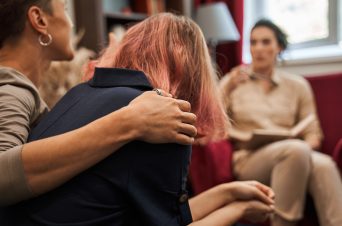
How to have a better death
news | 01 May 2017
We’ve been talking to patients, their families, doctors and community services in Lambeth & Southwark to see how our health service can better deal with death. Here’s what we found out:
Recently the Economist published a lead article entitled ‘How to have a better death‘. This is becoming one of the most crucial problems of our time, but one we rarely talk about:
In your article ‘How to have a better death’, you rightly highlight that an ‘unintended consequence’ of improved medical care and longer life expectancy has been to ‘to turn dying into a medical experience’, despite the fact that ‘medicalised deaths do not seem to be what people want’.
In response, you argue ‘more palliative care is needed’. From our experience of running an end of life care innovation programme in South London, called Better Endings, it’s clear that universal access to excellent palliative care will not be enough. Radical change is needed – change that places the emotional wellbeing of those that are dying, and their loved ones, on an equal footing with symptom management and clinical intervention.
The medicalisation of death in our society has led not only to prolonged and painful medical intervention, but also to making professionals almost exclusively responsible for the care of the dying. Increasingly, professionals “own” death. Dying has become hidden away in institutions, meaning that families, carers and communities feel disempowered to really support those around them. What we hear from people who are dying is that the care they want – to be listened to, to feel supported, to feel understood holistically – need not come from professionals. In fact, it’s better placed to come from the people that know us well in our communities – with neighbours providing companionship, families being empowered to make decisions and be involved, and open conversations about death and dying happening between friends.
In Lambeth and Southwark we’ve seen the energy and enthusiasm from community groups to provide this support. From families, we’ve heard about the desire to be better equipped to provide the care they want to give. And with our health service so infamously stretched, unlocking this potential is key to enabling us all to die better. We need to accept that death is not a medical process we can guard against, but a social, cultural and emotional experience that will affect us all.
Words by Sarah Gillinson and Sarah Dew
If you want to get in touch with us then you can talk to Perrie Ballantyne from our team. Or read about the work we’re doing here.
More Like This

Better Endings: creating new solutions for end of life care
Everybody deserves great support for themselves and for their families at the end of life. We know that at the moment this doesn’t always happen.
06 Dec 16

Better Endings final learning event
Everyone deserves great care and support for themselves and their families at the end of life. We know this doesn’t always happen.
11 Dec 17

Our Collective Mental Health Is Getting Worse – But Why?
11 Jan 17